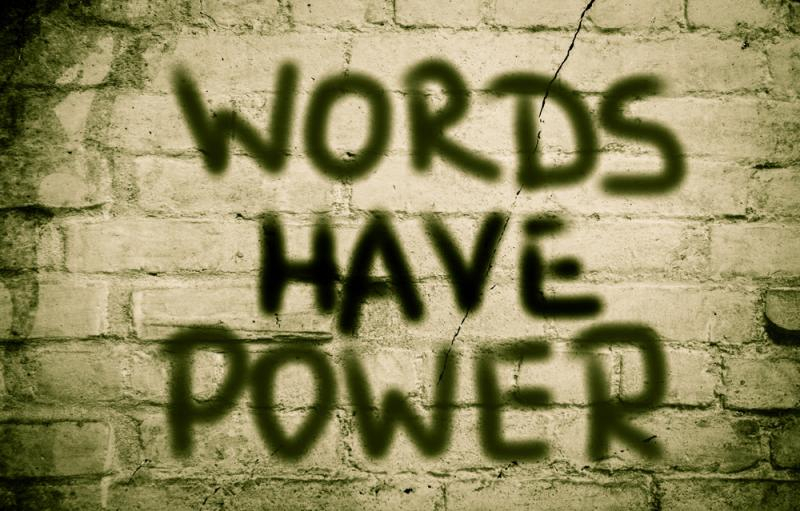The Language of Effective Coaching Accountability

While mentoring a coach along the path towards her ACC (Associate Certified Coach through the ICF – International Coaching Federation - http://coachfederation.org) I observed her repeated hesitancy in using accountability in her coaching. As we explored this I found that in her coach training she had been exposed to a style of enforcing accountability instead of co-creating accountability. The words turned her off, and she feared they would turn off her client as well.
“How will I know you’ve done this?” “How will you let me know you got this done?”
 Drill Sergeant Approach Not Welcome.
Drill Sergeant Approach Not Welcome.
The subtle (or not so subtle) tone of the supervisor/teacher/drill sergeant comes through with words like this.
The MINDSET of the coach around accountability is paramount. Through Real Balance Global Wellness Services, Inc., and in my book Wellness Coaching For Lasting Lifestyle Change, 2nd Ed. (https://wholeperson.com/store/wellness-coaching-lifestyle-change.shtml) I am always teaching that in effective coaching the client is not accountable to you, the coach, they are accountable to themselves. The client wants to be accountable and follow through on their commitments. The accountability that coaching offers is, perhaps more than any other single feature, what put coaching on the map. It is a premier value that coaching offers. Clients want to have a way to finally succeed and “get er’ done”! When the coach realizes that accountability is something the client truly wants and appreciates, yet doesn’t want to be bossed, the mindset becomes one of collaboration instead of supervision.
 The Word Choice Is Key
The Word Choice Is Key
“How can I help you follow through and get this done?” “How can I help you accomplish this?” “What’s the best way to handle accountability around this?”
The tone here implies the work of an ally who is standing shoulder to shoulder with the client and wants to be right there during the tough part of behavioral change and action. It keeps the essential client-centered nature of coaching intact. It honors that the client is the one in the driver’s seat and the one responsible for their actions, or lack thereof. And concomitantly it takes the responsibility off of the coach’s shoulders where it can feel like more of a burden.
Teaching Our Clients To Be Clients
A crucial part of effective coaching is to build a great alliance with our client and part of that is educating them on how coaching can work for them. The accountability that our clients are used to is almost always completely from a subordinate position. They have experience being a student, an employee, a patient, and a child. Perhaps they even have been on the receiving end of an unhealthy relationship with an intimate partner who bossed them around. The “drill sergeant” approach portrayed on television by the ruthless fitness trainer makes for entertaining TV, but defies all that we know about how to help someone succeed at lasting lifestyle change.
As coaches we offer something completely different in the world of accountability. We offer an alliance to help our clients achieve what they want to achieve. The client chooses what they want to work on, and with our assistance they refine what accomplishing their tasks will look like. The action steps they define fit into a larger plan (in wellness coaching we call this The Wellness Plan). We co-create AGREEMENTS about how the client wants to be accountable to themselves, and how the coach can assist.
One of the most brilliant sayings about coaching I’ve ever heard is:
Coaching is not a helping profession. It is an assisting profession.
As we coaches explain how accountability in coaching works the mindset of this co-creative alliance must pervade our language. The coach is essentially saying: I’m just here to help you do what you want to do. You’re not accountable to me. I want to help you (assist you) find the best way possible to complete this. You’re the one in charge here. It’s not about pleasing me, it’s about pleasing yourself.
Loophole-Free Accountability
Once clients understand how coaching accountability works they truly appreciate it. If our client truly wants to accomplish a certain goal and knows that the action steps required to get there must be done and done consistently they really do want serious accountability. The irony of coaching is that the coach provides accountability without the client being accountable to them.
In Wellness Coaching For Lasting Lifestyle Change, 2nd Ed., I talk more about what I call “loophole-free accountability”. Clients appreciate assistance in helping them avoid their own self-deception and the tiny part of themselves that resists change and may even engage in self-sabotage. Holding fast to commitments that have been made, but having zero expectations delivers a message that the coach will be solid in following the accountability agreements.
I once received what I took to be a supreme complement when my client said I was “the iron fist in the velvet glove” when it came to accountability. My language always was clothed in the velvet of kindness and that of a true ally, but the iron fist showed up in the form of language that held fast and true to our agreements.

The Sound of Great Coaching Accountability
CLIENT: I know I should practice the Tai Chi that I learned more often. I know it would be great for my knees and other joints and help me feel more relaxed. I’ve done the class now, read all I can read. I know it’s good for me. I’m ready to get serious about practicing.
COACH: Excellent! You sound like you’ve prepared all you need and now it’s time for applying what you’ve learned and benefitting from it. What would really consistent practice look like for you?
CLIENT: Well…I know I can’t do it everyday. I’m not there yet. But, you know, if I practiced say three to five times a week that would be fantastic. Realistically, let me begin with three times a week.
COACH: Great! So are you ready to make a commitment to help yourself by practicing three times a week?
CLIENT: Yes. I know I can fit it in at least three times. If I do it less than that I really won’t get the benefit I want.
COACH: Okay. So how can I help you follow through and really get that accomplished?
CLIENT: What do you mean?
COACH: Well, you really want to do this. How can I help you be accountable to yourself to practice three times a week?
CLIENT: I guess I’m not sure. I suppose we could just talk about it at our next coaching session.
COACH: Absolutely. That might be entirely sufficient. We can do that for sure. Let me ask though… since you are attempting to begin practicing three times throughout the week, would it help if you sent me an email informing me when you have practiced?
CLIENT: Actually that would help. In fact, could you send me reminder emails?
COACH: What I’ve found works best is if instead of me being responsible to remind you, that you hold yourself accountable to remember to practice and then let me know that you accomplished that. How does that sound?
CLIENT: Yeah. That probably is best. So when should I email you?
COACH: Well, let’s figure out what will work best for you. You could email me after each time your practice, or we could set up certain days that you agree to email me about it. What would be best for you?
The Client Stays Behind The Wheel
Effective coaching accountability must be a client-centered process. However, a coach can be very client-centered and still be moderately directive. Effective coaches do confront and challenge their clients. We do draw upon our training and experience to suggest implementing strategies that have a greater chance of success. It’s still the client who decides.
The coaching profession has long drawn upon the areas of communication studies and linguistics for good reason. Perhaps in no other area of coaching is language more vital than in co-creating agreements around accountability and helping clients succeed in achieving their goals.








Only registered and logged in readers can leave comments.